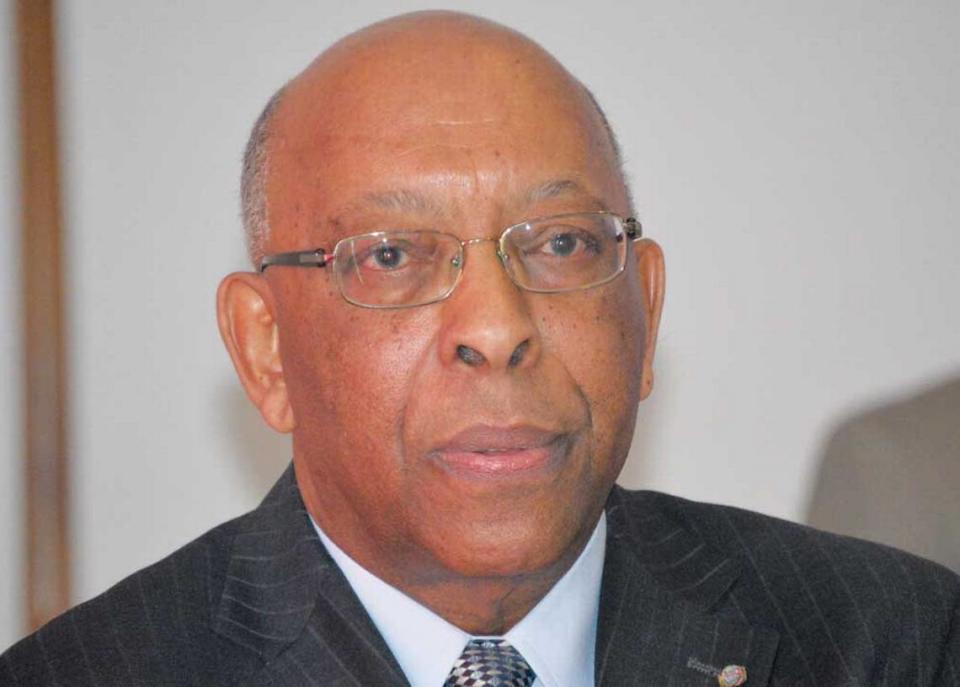The Haiti Recovery Initiative could help revive a dying country | Opinion
Haiti is going through one of its most severe crises, marked by the assassination of President Jovenel Moise in July 2021, the disintegration of democratic institutions and the proliferation of powerful gangs that terrorize the population and increasingly control a dying country.
From an economic perspective, the country experienced almost 2% negative growth, accompanied by 47% inflation and 50% devaluation of the Haitian gourde over the past four years, while suffering from continuous brain drain and capital flight. Haiti is engaged in a dangerous downward spiral of exploding criminality, economic chaos and expanding poverty that are mutually reinforcing.
However, despite gangs’ threats, lack of access to basic services and multiple natural disasters, the Haitian people demonstrate remarkable resilience and nurture hope for a better future. This is where the Haiti Recovery Initiative, with strong and long-term support from foreign partners, can make a difference.
The international community cannot allow Haiti to become a permanent source of political instability, drug and weapon trafficking, and illegal immigration, which can negatively affect the United States and Caribbean neighbors. Because of deficient security forces and rampant corruption, Haiti, close to Miami, constitutes the ideal platform, for any groups or nations determined to conduct hostile acts against the United States. Fixing this problem will require limited financial and human resources and could rapidly lead to transformational results.
Haiti is a country in agony; three key principles should guide any new action from foreign partners:
▪ Decision makers must adopt an integrated approach, including security, political, economic and humanitarian components, to design the right response to the Haitian crisis, instead of insisting only on a political consensus as the main solution. A “Recovery Roadmap” should be established that will lead to transparent elections by the end of 2024. There must be clear milestones in terms of security and law enforcement, fiscal discipline, investment goals and institutional reforms.
▪ The highest priority, by far, is to restore security and the rule of law. This cannot be achieved without the assistance of a multinational security force that will help strengthen the Haitian police and protect the population. Security enhancement must be accompanied by a robust job-creation program that will offer young men and women sustainable alternatives to criminal lifestyles.
▪ It is crucial to mobilize enough financial resources to restart the economy and address the humanitarian needs of the population. This ambitious agenda will require hundreds of millions of dollars a year, primarily from donors, international financial institutions, private investors and the Haitian diaspora. For its part, the Haitian government must drastically reduce unnecessary expenses, increase security allocations and set aside public funds to development programs.
Of course, many international actions in Haiti have fallen short of expected results, sometimes because of poor design and implementation from the international community, but also because of a lack of vision and absence of ownership from Haitian leaders.
Nevertheless, we must keep a positive spirit and remember our past achievements as a source of inspiration to build back the country:
Haiti, a founding member of the United Nations, had democratic institutions when most developing countries were still colonies. We were a land of freedom and a symbol of liberty and dignity for Black and colonized people around the globe. We granted Haitian citizenship to Jews when they were fleeing the Holocaust. Haiti was always at the forefront of the fight for independence and self-determination of oppressed nations and our intellectuals played a key role in the Black cultural and political empowerment over the 20th century.
Forty years ago, in a Cold War context, the U.S. government launched the Caribbean Basin Initiative (CBI), a bipartisan, integrated program to stimulate growth and exports, expand employment and strengthen institutions in the Caribbean and Central America. Haiti became the regional leader in assembled goods exported to the United States. More than 80% of baseballs used in the United States came from Haiti. The economy grew steadily, and more than 50,000 jobs were created.
Today, the Haiti Recovery Initiative could be a unique revival opportunity for the Haitian people. But it requires the unwavering support and commitment of international partners. By adopting an integrated approach, restoring security and mobilizing adequate resources, we can pave the way for a brighter future for the Haitian people.
Jean Robert Estimé is former foreign minister of Haiti and ambassador to France. He is the former chief of party of USAID Development Projects in Africa and Haiti.


